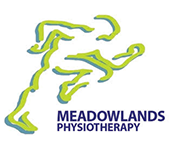We Need to Talk About Pelvic Floor and Perinatal Rehab
Why do we need to talk about it? To start, it could dramatically improve your well-being.
The only thing is, well, a lot of us are embarrassed to talk about it.
What is Pelvic Floor Rehab?
Right, first things first, the pelvic floor is a network of muscles that support your pelvic organs. For a man, that means the bladder and bowels, and for women it also supports the vagina and uterus.
Pelvic floor and perinatal rehab aim to strengthen these muscles to treat issues relating to incontinence and sexual dysfunction. These issues may be uncomfortable to talk about, but are undoubtedly better to address and resolve.
Pelvic Floor Issues
You may benefit from pelvic rehab if you experience:
- Bowel incontinence
- Bladder incontinence
- Painful intercourse
- Lower back pain
- Pelvic pain
These conditions can be caused by hypertonicity (tight muscles), hypotonicity (weak muscles), or a combination of the two. Pelvic floor rehab begins with a physiotherapist working with you to identify the root of your issues and then designing plan to address those causes directly.
The Trouble with Kegels
You might be familiar with Kegel exercises and think that they are the answer. That is where a physiotherapist’s guidance can prove useful. Kegel exercises strengthen weak or unresponsive muscles, however if your pelvic floor rehab concerns include tight muscles or involves a tear in pelvic muscles, Kegel exercises might do more harm than good.
Perinatal Rehab
Both sexes can benefit from pelvic floor rehab, but perinatal rehab keeps women healthy during and after pregnancy (gents can visit this site for more pelvic floor rehab info).
Perinatal rehab helps pregnant women relieve or even pre-empt some of the strain caused by the changes to their bodies during pregnancy. By learning how to move or exercise correctly, women can lower the risk of bladder and bowel incontinence, pelvic organ prolapse and relieve back, pelvic, and groin pain.
Perinatal rehab can also help a pregnant woman learn to relax her pelvic floor in anticipation of delivery. A relaxed pelvic floor allows the uterus to expel the baby with minimal strain to the body.
The Role of a Physiotherapist
During perinatal and pelvic floor rehab, a physiotherapist can help you both recover from the strains of pregnancy, and adjust your lifestyle for continued health. Perinatal rehab begins with an examination and discussion about your condition and lifestyle.
Exercises will often focus on spinal alignment and breathing techniques, as well as an emphasis on how you can safely activate your muscles. It may also include advice on how to accomplish everyday tasks safely. Your perinatal rehab also includes prescribed exercise.
Your physiotherapist will also be able to advise you on self-management and help you determine when it is safe to return to high intensity activities like running, jumping, etc.
Men and women of all ages can benefit from pelvic floor rehab, and perinatal rehab can play a role in safe pregnancies. Contact Meadowlands Physiotherapy today to speak with a physiotherapist about exercises that are the best fit for you!

